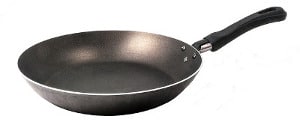The following words and phrases are very similar:
finally
at last
lastly
in the end
But the meaning is in fact slightly different. Let’s look at each one in more detail.
finally – Use 1
“finally” presents the last element of a series or list.
Examples:
Mark: What do we need from the supermarket?
Jane: We need eggs, milk, sugar and finally, a frying pan.
First, we need to rent an office. Then we need to buy some desks. Finally we need to recruit a secretary.
finally – Use 2
We use “finally” to express that one has been waiting a long time for something.
Position in a sentence
“finally” goes in the middle position of a sentence.
If the sentence has a main verb, then we put “finally” before the main verb.
Example: The bus finally arrived at midnight.
If the sentence has an auxiliary or modal verb, then we put “finally” after the auxiliary / modal verb and before the main verb.
Example: Andrew has finally bought a new car.
If the sentence has the verb “be” as a main verb (a linking verb), then we put “finally” after the verb “be”.
Example: The baby is finally asleep.
at last
“at last” also expresses that one has been waiting a long time for something. “at last” strongly expresses impatience or inconvenience at the long wait.
Position in a sentence
We can put “at last” at the beginning, middle or end position.
Examples:
Beginning position: At last Mark has passed his degree.
Middle position: Mark has at last passed his degree.
End position: Mark has passed his degree at last.
lastly
“lastly” describes something that comes at the end of a series or list. (This is the same as use 1 of “finally” as described above.)
Examples:
To start with, I drank a cup of coffee. Then I sat down. Lastly, I read the newspaper.
Firstly, the house is too expensive; secondly, it’s in bad condition; thirdly, the location is awful; and lastly, we don’t need a new house.
in the end
“in the end” describes a conclusion after a long process, a lot of problems or after a lot of discussion and analysis.
Examples:
The manager interviewed her 3 times, and in the end he offered her the job.

We couldn’t decide between Paris, Rome or Madrid for our holidays. In the end, we chose Paris.
He isn’t a good driver but he passed his driving test in the end.
More English lessons
English lessons on our Youtube channel
Meaning and use of “to be used to”
QUIET or QUITE – Confusing English words
How to use DO and MAKE in English
Defining relative clauses & relative pronouns
List of all lessons


Everaldo Rivelino Kosvoski says
I really love study whif You ! Thank you ! My name is Everaldo i from Brazil .
Deepak jat says
superb explaination.
thirugnanam says
Teaching skill is one of the best gift, it has given by nature 100% of you.
your sound alwas good . I would like to develop an english communication skill by your crown acadamy. kindly suggest me.
I am at 47 , I have been working in the private company in india. I am unable to speak english language due to less interest during childhood.
Currently , I have faced lot of communication problem and losed opportunity due to poor english knowledge.
I am getting more confident level after watched your clasess too.
Venus says
I am venus from Iran, your website is the best.
Jane says
Lastly, I think lastly is a dumb word !
Satish Kumar says
Lastly Take or In the End Take.